11 Pantry Foods That Secretly Wreck Your Circadian Rhythm (Sleep Scientists Sound the Alarm)
Your kitchen might look innocent. But it’s secretly working against your sleep every single night.
You brush your teeth, dim the lights, and slip into bed. Yet you toss and turn for hours. Sound familiar? The problem isn’t your mattress or your stress levels. It’s what you ate earlier.
These 11 common foods are messing with your sleep in ways you never imagined. They spike your blood sugar, jack up your heart rate, and keep your brain buzzing when it should be shutting down. The worst part? Most people have no idea these foods are the reason they can’t get quality rest.
Let’s expose these sleep-stealing culprits hiding in plain sight.
Why Your Pantry Might Be Your Sleep’s Worst Enemy
The Hidden Sleep Crisis
How Food Timing Affects Your Sleep Quality
What Sleep Experts Say
How Food Disrupts Your Sleep
The Chain Reaction Inside Your Body
Your Optimal Eating Timeline
Align Your Meals with Your Body’s Natural Rhythm
• Largest meals go here
• All sugary foods allowed
• Caffeine before 2PM only
• Moderate portions only
• Focus on protein & vegetables
• Skip added sugars completely
• Light snacks only if needed
• Sleep-promoting foods
• Maximum 200 calories
Your 3-Step Pantry Makeover
Transform Your Kitchen for Better Sleep
Sleep-Supporting Evening Snacks
Better Choices for Better Rest
Rich in magnesium
Natural melatonin
Promotes serotonin
Contains tryptophan
#1: Dark Chocolate (The Caffeine Deceiver)
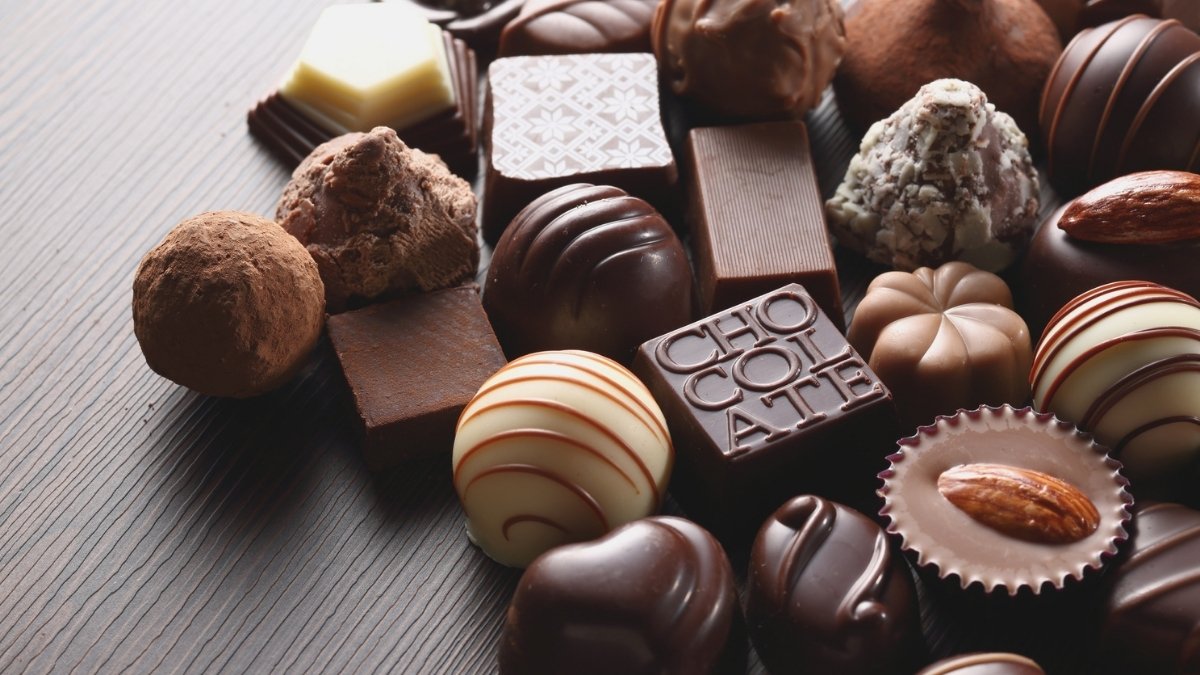
Dark chocolate seems like a healthy treat. But it’s packed with more caffeine than you think.
A single ounce of dark chocolate contains 12-25mg of caffeine. That’s about the same as a cup of decaf coffee. But here’s the kicker – caffeine has a half-life of 6-8 hours in your system. Eat chocolate at 6 PM, and half that caffeine is still pumping through your veins at midnight.
Dark chocolate also contains theobromine. This compound is caffeine’s sneaky cousin. It stays in your system even longer and keeps your heart rate elevated. Your body treats it like a mild stimulant, making you feel alert when you should be winding down.
The darker the chocolate, the more caffeine it packs. A bar that’s 85% cocoa has almost as much caffeine as a shot of espresso. Even milk chocolate isn’t safe – it still contains enough caffeine to mess with sensitive sleepers.
#2: Aged Cheeses (The Tyramine Bomb)
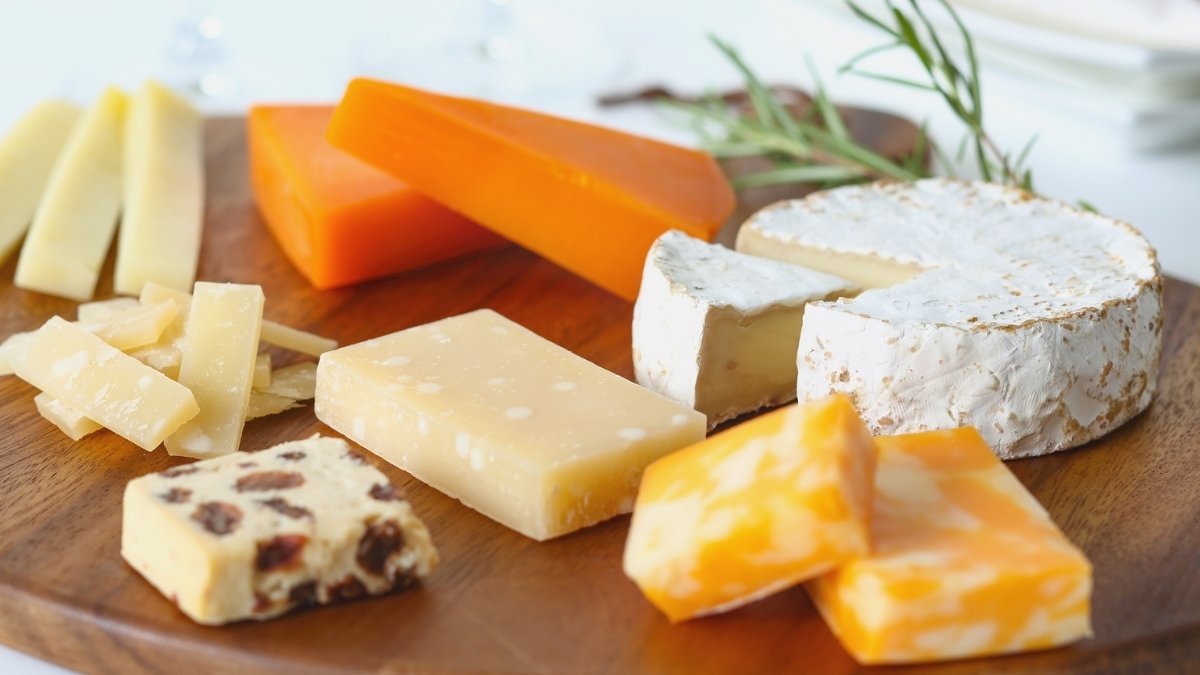
That cheese board before bed might explain your restless nights.
Aged cheeses are loaded with tyramine. This natural compound forms when proteins break down during the aging process. The older the cheese, the more tyramine it contains. Your brain treats tyramine like a wake-up call, releasing norepinephrine that makes you feel alert and jittery.
Cheddar, blue cheese, and parmesan are the worst offenders. These cheeses can contain 10-30mg of tyramine per serving. That’s enough to trigger a stress response in your nervous system. Your heart rate increases, your blood pressure rises, and sleep becomes nearly impossible.
Some people are more sensitive to tyramine than others. If you get headaches after eating aged cheese, you’re probably one of them. These same people often struggle with sleep after their evening cheese fix.
#3: Canned Tomatoes (The Hidden MSG Trap)

Fresh tomatoes are healthy. Canned tomatoes are sleep disruptors.
The canning process breaks down tomato proteins into natural glutamates. These work just like MSG in your brain, acting as excitatory neurotransmitters. They fire up your nervous system when it should be calming down for sleep.
Heat and processing multiply the glutamate levels by 10-15 times compared to fresh tomatoes. A cup of canned tomato sauce can contain as much glutamate as a heavily processed snack food. Your brain can’t tell the difference between natural and artificial glutamates – both keep you wired.
Many canned tomatoes also come with BPA-lined cans. This chemical mimics estrogen in your body and disrupts your natural hormone cycles. When your hormones are out of whack, your circadian rhythm gets thrown off too.
#4: Energy/Protein Bars (The Sugar Crash Culprit)
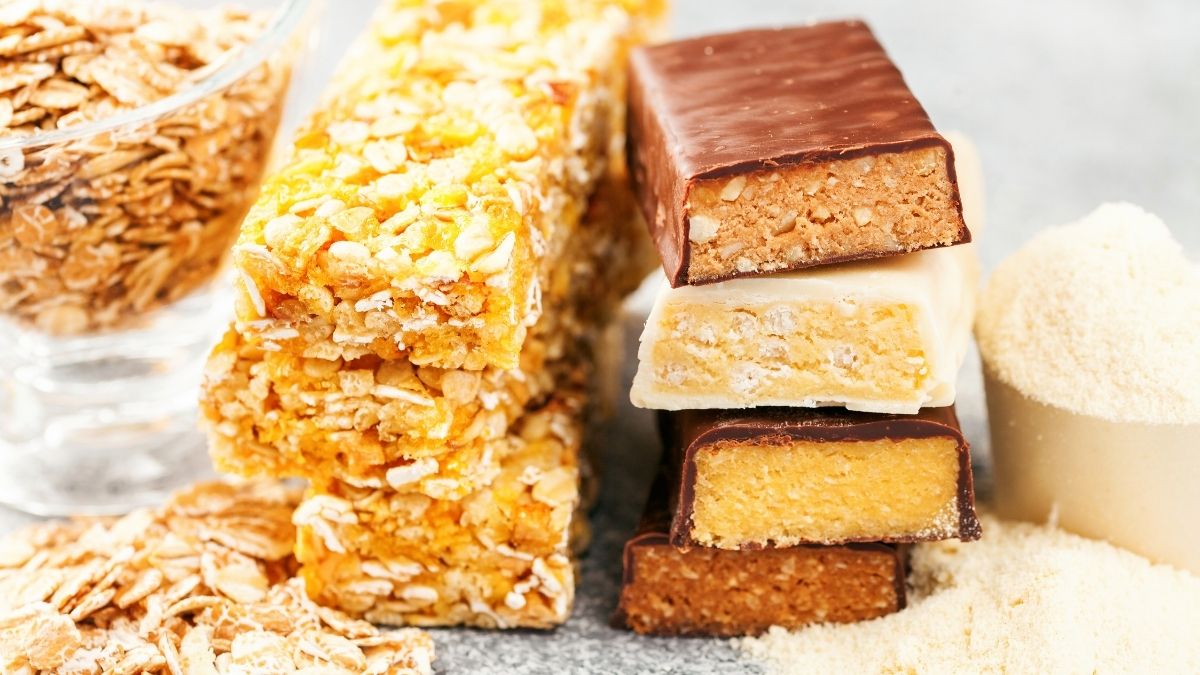
These bars promise sustained energy. They deliver sleep chaos instead.
Most energy and protein bars are sugar bombs in disguise. They contain 15-25 grams of added sugars, often from multiple sources like corn syrup, brown rice syrup, and fruit concentrates. This sugar rush spikes your blood glucose levels fast and hard.
What goes up must come down. Within 2-3 hours, your blood sugar crashes below normal levels. Your body panics and releases stress hormones like cortisol and adrenaline to bring glucose back up. These hormones are designed to keep you awake and alert – the opposite of what you want at bedtime.
Many bars also contain hidden caffeine from chocolate chips, cocoa powder, or added green tea extract. A single bar can pack 20-40mg of caffeine. Combined with the sugar rush, you’re getting a double dose of stimulation.
#5: Spicy Sauces & Condiments (The Body Heat Raisers)
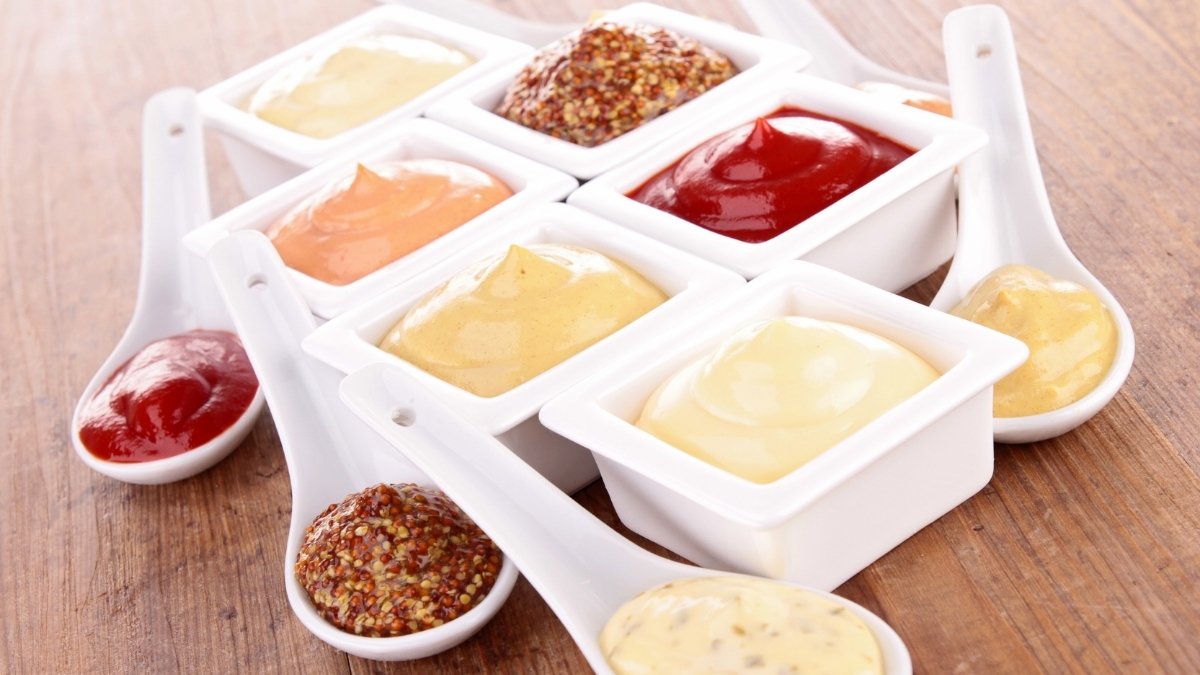
Love hot sauce? Your sleep quality doesn’t.
Capsaicin is the compound that makes peppers hot. It raises your core body temperature by triggering heat receptors throughout your body. Your internal thermostat gets confused and starts working overtime to cool you down.
Quality sleep requires your body temperature to drop by 2-3 degrees. Spicy foods fight against this natural cooling process. You’ll feel hot, sweaty, and restless all night. Your body can’t enter the deep sleep phases when it’s busy regulating temperature.
Spicy foods also irritate your digestive system. They increase stomach acid production and can cause cramping, gas, and diarrhea. These digestive issues peak 2-6 hours after eating – right when you’re trying to sleep.
The pain from spicy foods triggers endorphin release. These natural painkillers can make you feel euphoric and alert. It’s your body’s way of dealing with the “injury” from capsaicin. But endorphins are stimulating, not relaxing.
#6: Processed Deli Meats (The Sodium & Preservative Problem)
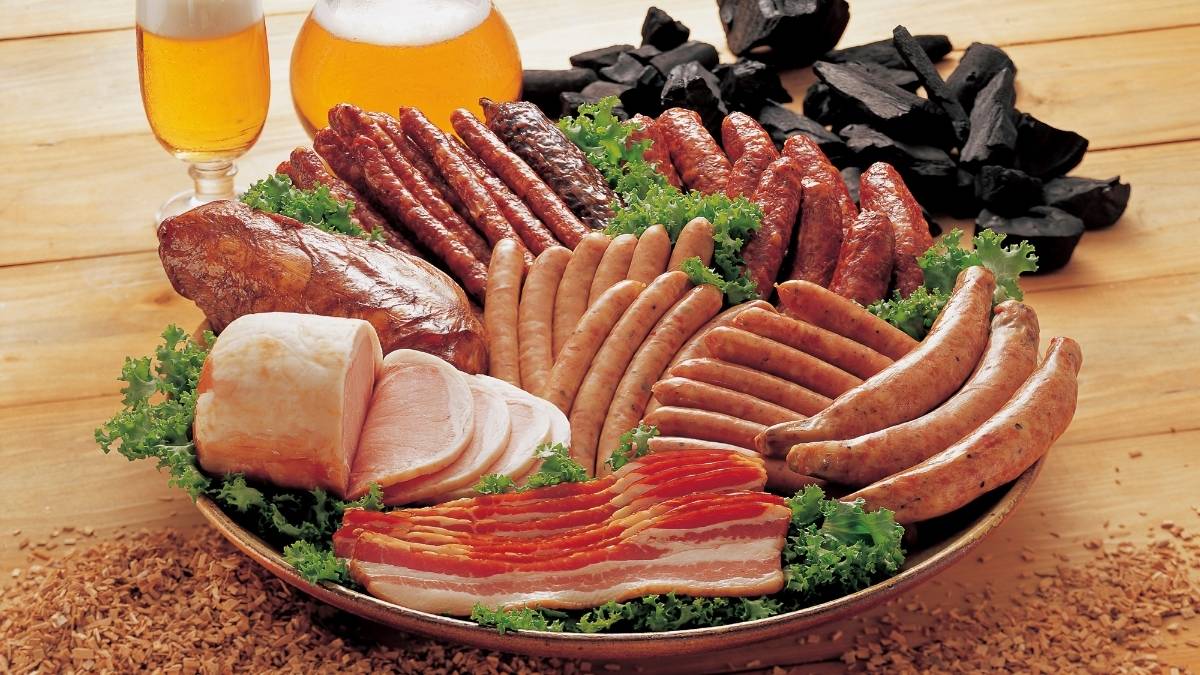
That late-night sandwich might be stealing your sleep.
Deli meats are packed with sodium – often 500-700mg per serving. High sodium levels make you thirsty and cause water retention. You’ll wake up multiple times to use the bathroom or get drinks. Each wake-up breaks your sleep cycles and prevents deep, restorative rest.
Nitrates and nitrites are the real sleep killers. These preservatives keep deli meats looking fresh and pink. But they convert to nitric oxide in your body, which dilates blood vessels and increases heart rate. Your cardiovascular system stays active when it should be slowing down for sleep.
Some people are sensitive to these preservatives and experience headaches, flushing, or anxiety after eating processed meats. These symptoms can last for hours and make falling asleep nearly impossible.
#7: Diet Sodas & Sugar-Free Drinks (The Artificial Sweetener Trap)
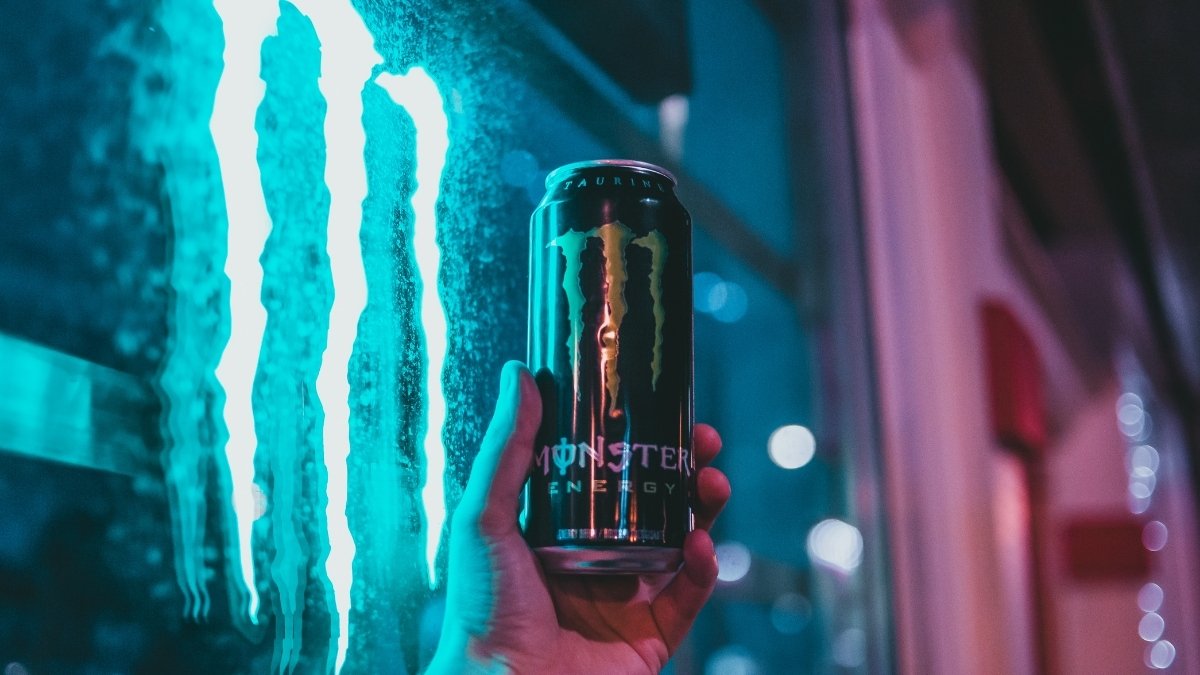
Zero calories doesn’t mean zero sleep problems.
Aspartame breaks down into aspartic acid in your body. This compound acts as an excitatory neurotransmitter, firing up brain cells when they should be calming down. It’s like giving your nervous system a small jolt of electricity right before bed.
Diet sodas still contain caffeine – sometimes more than regular versions. A 12-oz diet cola packs 35-40mg of caffeine. That’s enough to keep caffeine-sensitive people awake for hours. The artificial sweeteners can make you more sensitive to caffeine’s effects too.
Artificial sweeteners mess with your gut bacteria in ways scientists are just beginning to understand. These bacteria help produce GABA, a neurotransmitter that promotes relaxation and sleep. When your gut microbiome is disrupted, GABA production drops and anxiety increases.
#8: Instant Oatmeal Packets (The Sugar Spike Surprise)
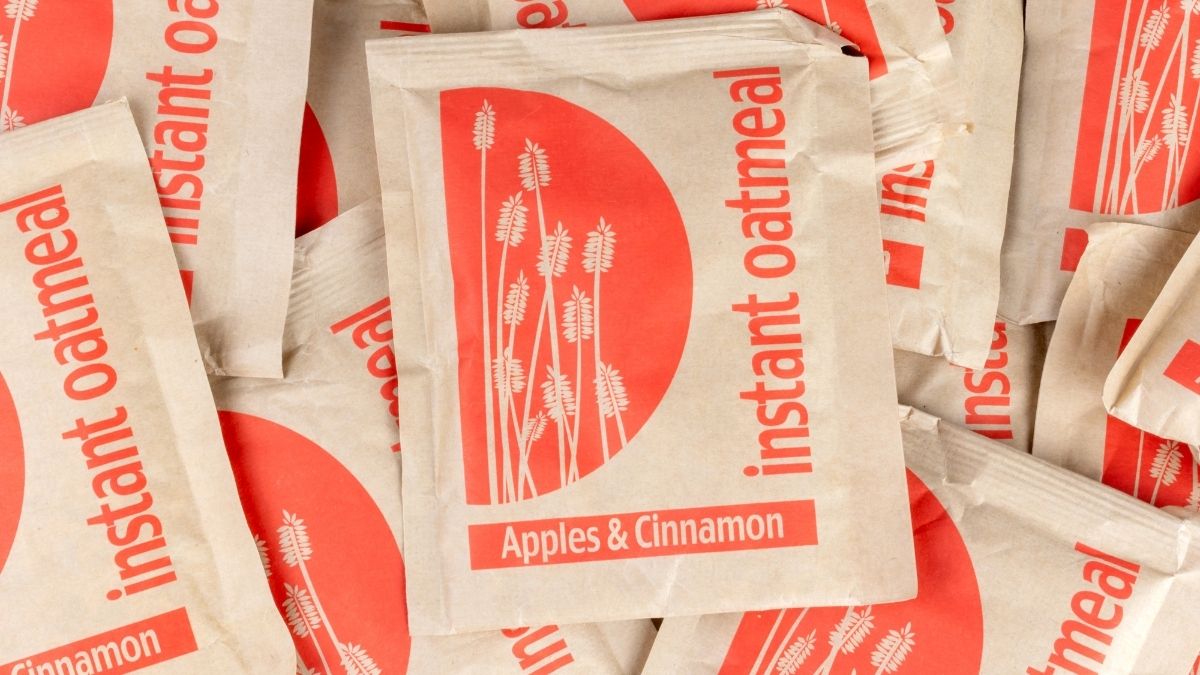
Oatmeal seems healthy. The instant packets are sleep saboteurs.
Most flavored instant oatmeal contains 10-15 grams of added sugar per packet. That’s more than three teaspoons of pure sugar hitting your bloodstream in minutes. Your blood glucose spikes fast, followed by an inevitable crash that triggers stress hormone release.
The crash usually happens 2-4 hours after eating. If you have instant oatmeal for dinner, you’ll hit the crash right around bedtime. Your body releases cortisol and adrenaline to stabilize blood sugar, keeping you wide awake when you should be sleepy.
Instant oats are processed differently than steel-cut oats. The processing breaks down fiber and creates a product that digests more like white bread than whole grains. You lose the blood sugar stabilizing benefits of real oats.
Artificial flavors in instant packets can trigger headaches and sensitivity reactions in some people. Common additives like vanillin and artificial maple flavoring are known migraine triggers. Sleep becomes impossible when your head is pounding.
#9: Granola & Cereal Bars (The Evening Energy Boost)
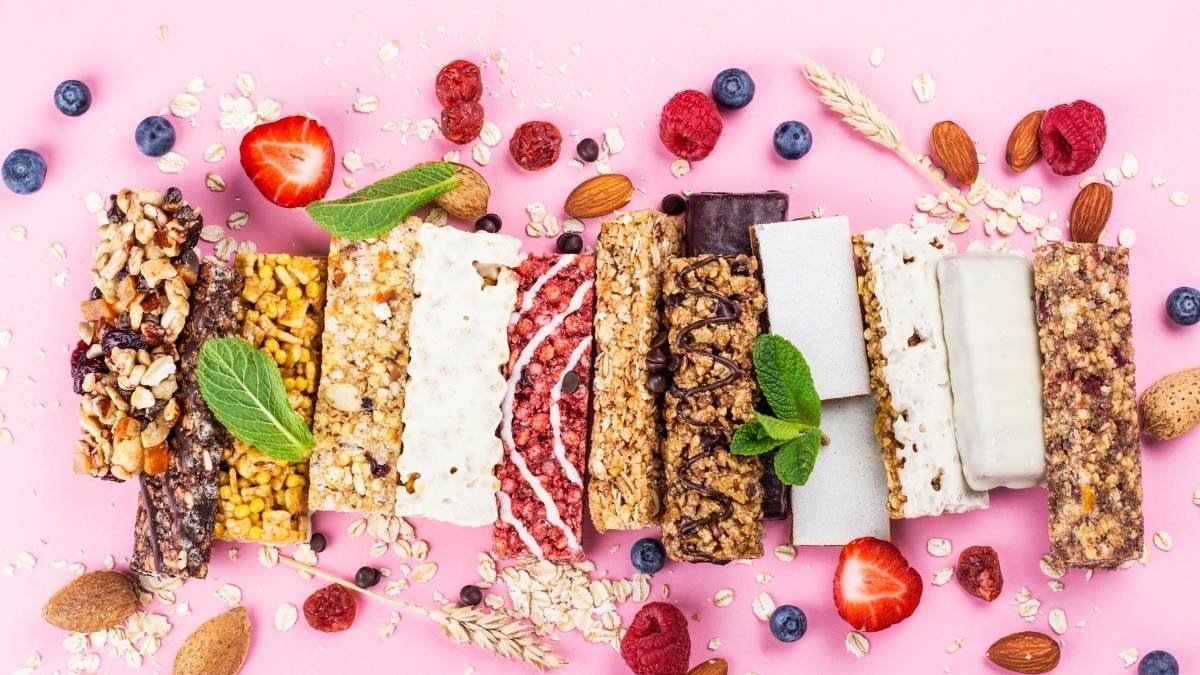
These bars promise healthy energy. They deliver sleep-disrupting chaos.
Most granola bars contain chocolate chips or cocoa powder, adding 5-15mg of hidden caffeine per bar. That might not sound like much, but it’s enough to keep sensitive people awake. The caffeine combines with sugar to create a double stimulant effect.
A typical granola bar contains 8-12 grams of added sugar from multiple sources. High fructose corn syrup, brown sugar, and honey all spike blood glucose rapidly. The subsequent crash triggers the same stress hormone release that keeps you tossing and turning.
Timing makes everything worse. Many people grab granola bars as evening snacks, thinking they’re making a healthy choice. But eating these sugary, caffeinated bars within four hours of bedtime guarantees sleep problems.
#10: Flavored Nuts & Trail Mixes (The Salt & Sugar Double Whammy)
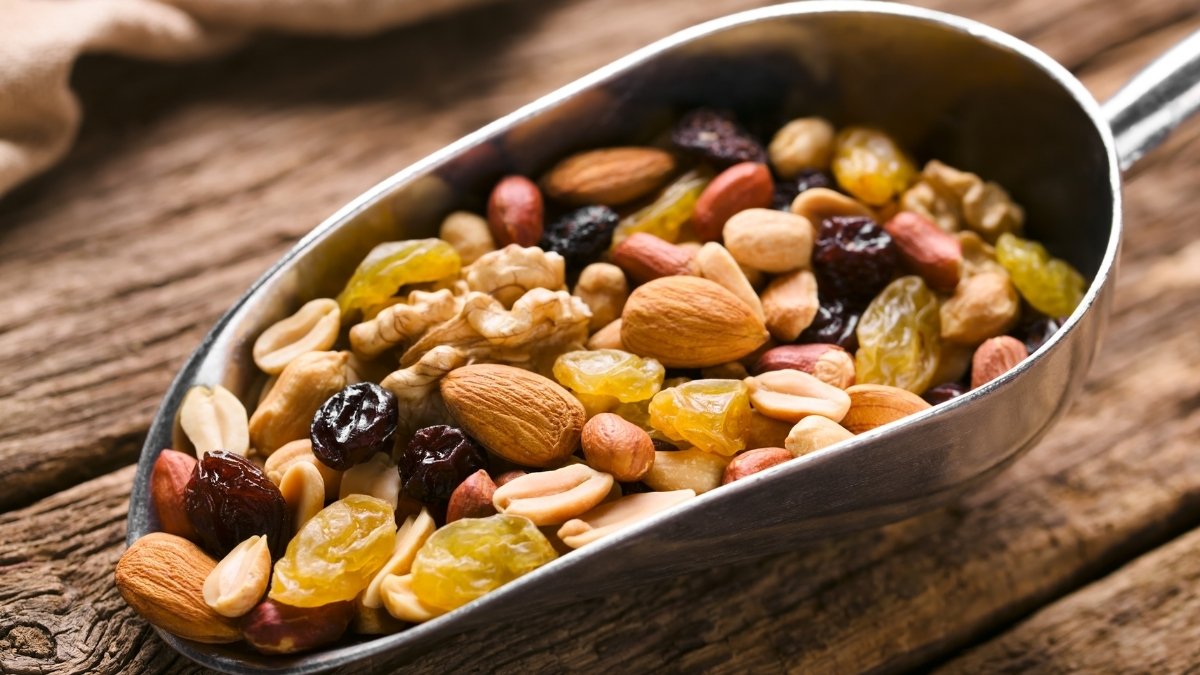
Trail mix seems like a healthy snack. The flavored versions are sleep killers.
Commercial trail mixes are loaded with sodium – often 150-300mg per small serving. The salt makes you thirsty and causes water retention. You’ll wake up multiple times during the night to use the bathroom or get drinks of water.
Candied nuts and dried fruits add massive amounts of sugar. A handful of honey-roasted peanuts contains more sugar than a cookie. This sugar spike and crash cycle disrupts sleep just like any other high-sugar snack.
Many flavored nuts contain MSG or “natural flavors” that act as excitatory neurotransmitters. These additives fire up your nervous system when it should be winding down. Your brain stays active and alert instead of preparing for sleep.
The chocolate pieces in many trail mixes add caffeine to the mix. Combined with sugar and salt, you’re getting a triple dose of stimulation. Even small amounts can keep caffeine-sensitive people awake for hours.
#11: Pickled & Fermented Foods (The Histamine Activators)
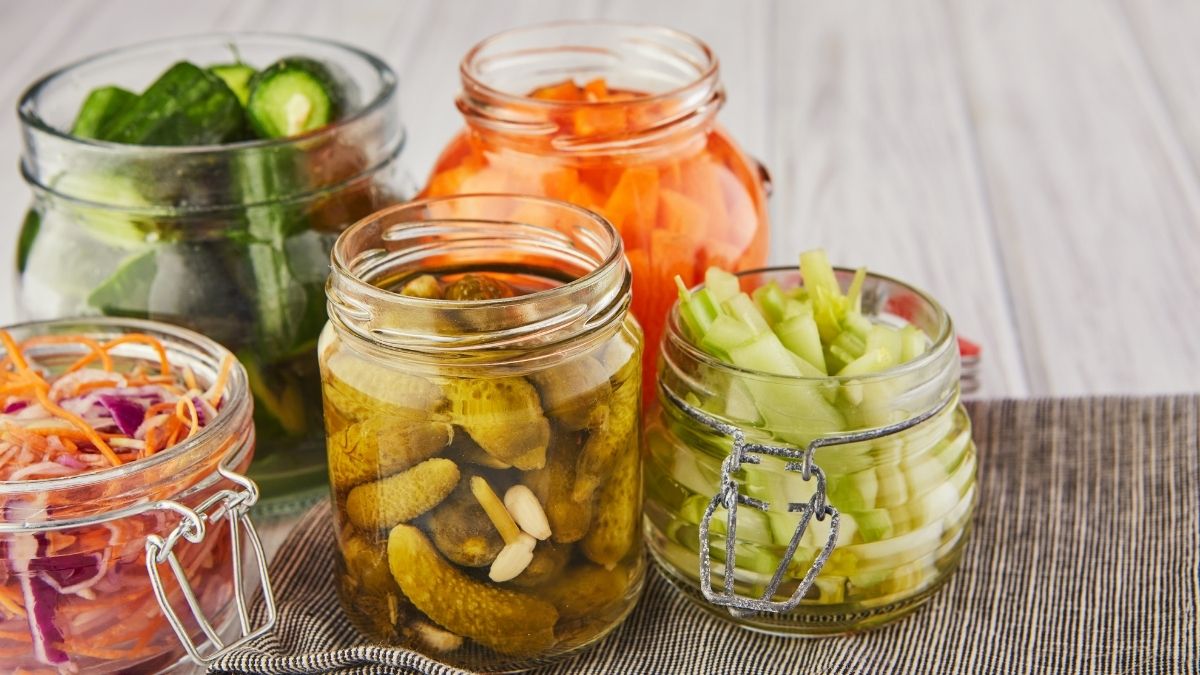
Fermented foods are trendy for gut health. They can wreck your sleep if you’re sensitive.
The fermentation process produces histamine as a natural byproduct. Some people can’t break down histamine efficiently due to low levels of the enzyme DAO (diamine oxidase). When histamine builds up in your system, it acts as a stimulant and keeps you awake.
Pickles, sauerkraut, kimchi, and aged cheeses are particularly high in histamine. Even healthy fermented foods like kefir and kombucha can trigger reactions in sensitive individuals. Symptoms include racing heart, anxiety, and feeling “wired” at bedtime.
The high sodium content in most pickled foods adds another sleep-disrupting element. Excess salt makes you thirsty and causes frequent nighttime wake-ups. Your kidneys work overtime to process the sodium, preventing deep sleep phases.
Take Back Your Sleep Tonight
Your kitchen doesn’t have to be your enemy. Now that you know these 11 sleep saboteurs, you can make smarter choices that support quality rest instead of fighting against it.
The fix isn’t complicated. Choose fresh over processed. Pick whole foods over packaged ones. Time your eating so these problematic foods stay far away from bedtime.
Your sleep is worth protecting. These small changes in your kitchen habits can lead to dramatic improvements in how you feel every morning. Start with the foods you eat most often, and watch your nights transform from restless to restorative.
Sweet dreams are made of smart food choices. Now you know exactly what to avoid and what to choose instead.








